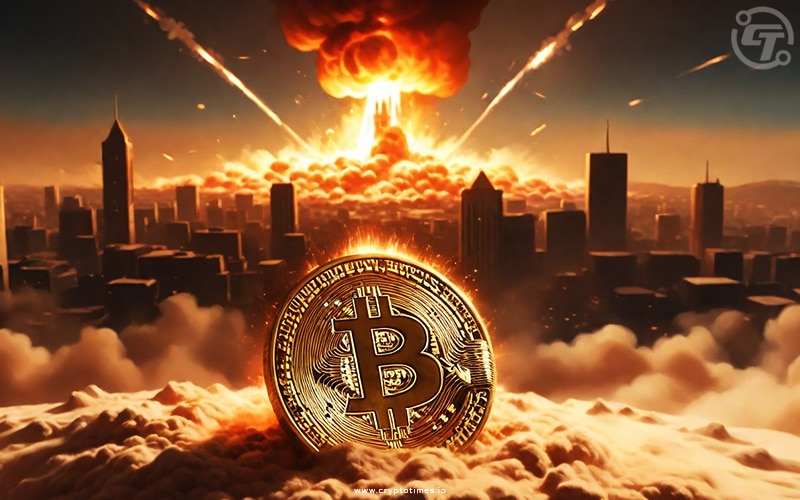Over the weekend, the value of a digital asset called PAXG, backed by gold, reached its highest point ever. This happened while tensions in the Middle East were increasing. Some people started questioning whether Bitcoin, which is often seen as a way to protect against geopolitical issues, is a reliable option for that.
On April 13, PAXG hit $2,855, while Bitcoin’s price dropped from over $67,500 to about $62,700 in just a few hours, marking a 7.5% decrease.
Bob Elliott, the co-founder and CEO of Unlimited Funds and former executive of Bridgewater, said, “Bitcoin may be many things, but it is not a geopolitical hedge.”
Tensions in the Middle East rose further over the weekend due to an attack by Iran using drones and missiles on Israeli targets.
Over the weekend, Bitcoin (BTC) and the PAX Gold token (PAXG) showed an interesting relationship: when BTC went up, PAXG went down, and vice versa. However, despite this apparent correlation, PAXG couldn’t maintain its momentum and fell back to its previous price level of around $2,376.
PAXG has been gradually increasing since March, rising by 20% alongside the price of gold, which reached $2,400 per ounce last week. But it’s worth noting that PAXG doesn’t have much trading activity compared to other major cryptocurrencies, with only about $36 million in daily trading volume.
Analyst Willy Woo added that Bitcoin “recovery happens within days” and also referred to the movement of prices amid the outbreak of the Russia-Ukraine war.
Elliott concluded that from a geopolitical perspective, Bitcoin is not a store of value asset, and its broader use may link it more closely to aggregate financial assets. “Along the geopolitical dimension, its pretty conclusive BTC is not ‘digital gold.’”
Also Read: Bitcoin Miners May Sell $5 Billion in BTC Post-Halving







